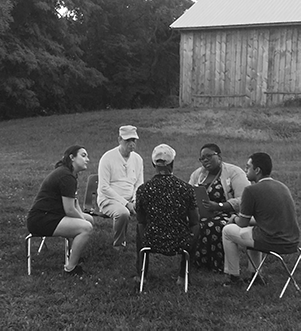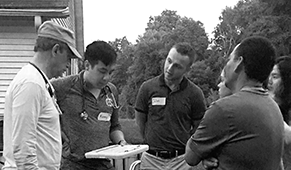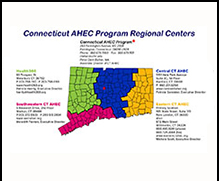Health Profession Student Summer Immersion Program
July 14 to July 26, 2019
Deadline to Apply is:
April 30, 2019
Exposure to rural healthcare: the rewards & uniqueness of the rural practice environment
Enhancing the Health Profession Workforce in Rural Litchfield County, CT and Dutchess County, NY
Touro College of Osteopathic Medicine-Middletown, Quinnipiac University Frank H. Netter School of Medicine and The University of Connecticut School of Medicine are teaming up to offer a unique 12-day rural immersion experience for MD, PA and DDS students.
This Summer Rural Immersion Program is an exciting opportunity for MD, PA and DDS students to participate in a clinical program in a rural community setting where they will experience the benefits and rewards of rural practice while learning about the unique components of health care in a rural environment.
Students will rotate between rural medical facilities including Salisbury VNA, Noble Horizons, Sharon Hospital, Hudson River Health Care Community Health Center, Geer Nursing and Rehabilitation Center, Mountainside Treatment Center and North Canaan Emergency Medical Services.
The rotations at our partner health care facilities focus on the unique components of rural medical practice including:
- exposure to rural clinicians in several primary care and specialty areas
- geriatric medicine
- emergency medicine
- rehabilitative health care
- home health care
- discharge planning and transition of care
- migrant populations
- Free housing provided by the Indian Mountain School in scenic Lakeville, CT.
But, it is not all work and no play! Students will also participate in social and entertainment experiences in rural northwestern Litchfield County, CT and northeastern Dutchess County, NY.
CT AHEC Network Statewide Initiative
The AHEC (Area Health Education Centers) program was developed by Congress in 1971 to recruit, train and retain a health professions workforce committed to underserved populations. The AHEC program helps bring the resources of academic medicine to address local community health needs. The strength of the AHEC Network is its ability to creatively adapt national initiatives to help address local and regional healthcare issues. Today, 300 AHEC program offices and centers operate in almost every state and the District of Columbia. Approximately 120 medical schools and 600 nursing and allied health schools work collaboratively with AHECs to improve health for underserved and under-represented.









